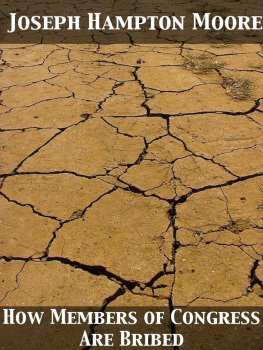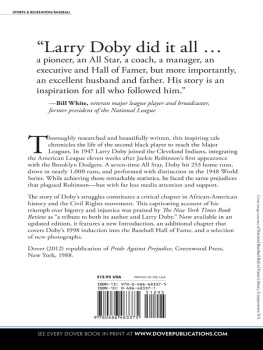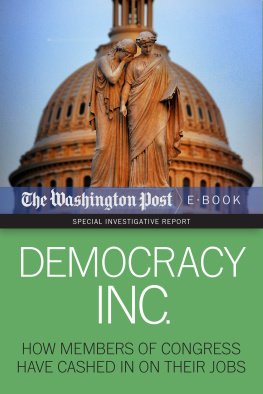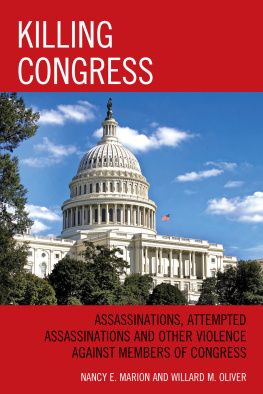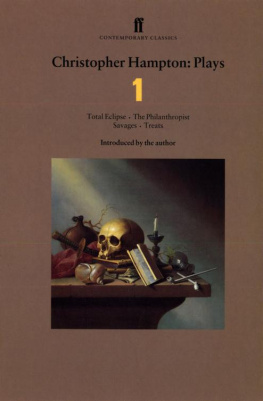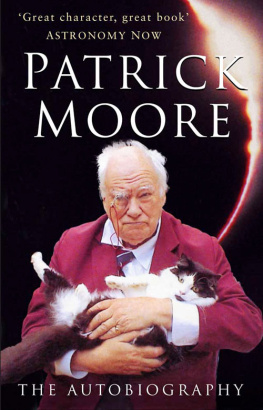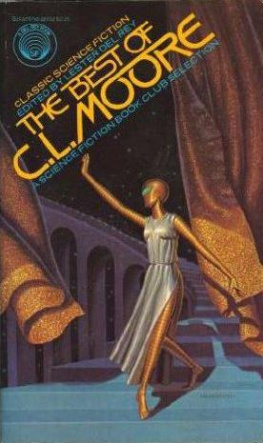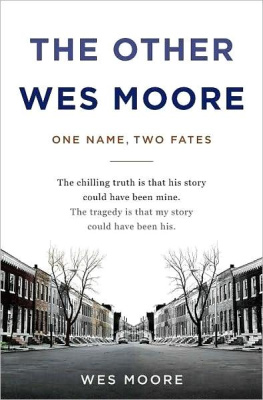HOW MEMBERS OF CONGRESS ARE BRIBED.
An Open Letter.
A Protest and a Petition.
From a Citizen of California to the United States Congress
by Joseph H. Moore.
The Lobbyist.
If a persistent intermeddler without proper warrant in Government affairs, an unscrupulous dealer in threats and promises amongst public men, a constant menace to sworn servants of the people in their offices of trust, a tempter of the corrupt and a terror to the timid who are delegated to power a remorseless enemy to wholesome legislation, a constant friend to conspirators against the common welfare for private gainif such a compound of dangerous and insolent qualities merged in one personality, active, vigilant, unblushing, be a Lobbyistthen Collis P. Huntington is a Lobbyist at the doors of Congress, in its corridors and in its councils, at Washington.
He is the spirit incarnate of Monopoly in its most aggressive form. Among the intrenched powers which have sapped the vitality and are a menace to the existence of our form of republican government, he is strong with their strength, dangerous with their power, perilous with the insolence of their courtesies, the blandishment of their open or covert threats.
For nearly thirty years he has engendered broadcast political corruption in order to enrich himself and his associate railroad magnates at the public cost.
The declared representative now of those who have been thus far successful conspirators against the general Treasury and ruthless oppressors of every vital interest of defenceless California, with resonant voice and open hand he is clearly visible upon parade, demanding attention from the elected servants of all the people, and easily dwarfing the lessor lobby by the splendor of his equipment.
The English Parliament would relegate such an intruder to the street; the French Deputies point to his credentials with infinite scorn; Italian statesmen would shrink from a perusal of his record, and the Spanish Cortes decline to listen to any plea that men who are at one and the same time known robbers and declared beggars have blended and vested rights as both such to millions of public money.
To the vision of thoughtful rulers and myriads of patriots throughout the world, reading history now as it is being created from day to day, the Anarchist naturally looms in the background of such a spectacle.
A Search-Light.
In order that a proper side-light be flashed upon him; that his choice methods of dealing with men and accomplishing his purposes may pass in review; that some Californians and many national legislators may be informed of that which they never knew, or reminded of that which they may have forgotten; that the record of his accidental and forced confession in open Court of an appalling use of money in defending stolen millions and grasping after more shall be revived; that his low estimate of the honor and integrity of public men, and his essential contempt for the masses, may be contrasted with his high appreciation of the debauching power of money; that the enslavement by himself and his associates of the naturally great State of California and her indignant people may be once more proclaimed with bitter protest and earnest appeal to all the citizens of our sister States throughout our vast commonwealth; and to the end that no such palpable embodiment of political infamy may continue to stalk without rebuke through all the open ways and sacred recesses of popular power crystallized at WashingtonI propose to revive the recollection ofand to briefly comment onthe whilom notorious Huntington-Colton Letters which became public property as part of the records of the Superior Court of Sonoma County in this State.
Huntington-Colton Letters.
Of an apparent nearly 600, only about 200 are in evidence. It is to be regretted that more did not come to light. If the public could only be privileged to read what he wrote to Leland Stanford, and to Charles Crocker, and to Mark Hopkinsas well as to David D. Coltonthere there would be much to reflect upon. But the public never will see such letters. The nature of them required their immediate destruction.
As Huntington explains:
"I am often asked by my associates in California about my views in matters that I have written to the others of, and allow me to say that all letters that I number consecutively, I have supposed would be read by all, and then go into the basket together." (No. 561. N. Y., April 7th, 1875.)
That was the safest way. It is not wise to allow great numbers of thinking people to read that they are victims of chicanery, corruption in high places, bribery, hire and salary, and oppression through conspiracy. There might be something more than a spice of danger in much carelessness.
Tone of the Letters
The letters under consideration, written during the four years from October, 1874, to October, 1878, tell a plain enough, tale of their own. They abound with cool and easy allusions to various men and things: to "convincing" public servants; to "fixing" committees in Congress; to "persuading" the most exalted officials; purchasing National legislators, as well as Territorial Governors; to deceiving local communities, and the United States generally, with well considered cunning; to working noisily with blatant instruments and quietly through masked agents; to creating public opinion by means of false showings; to electing or defeating candidates for office; to smiting enemies and rewarding friends.
Viewed as a contribution to the literature of fatal political infection the letters are unique. They embody an epitome of just such work as their writer is prepared to now continue, if the temper of the American people will permit him to do so.
The plane upon which his exertions will possibly be made may be justly imagined from the intimate knowledge and implied approval of bribery on a collossal scale which he mentions frankly and carelessly thus:
"I returned from Washington last night. The sub-committee of the R. R. Committee of the House have agreed to report Scott T. and P. Bills through to San Diego, and I am disposed to think the full committee will report it to the House. It can be hoped, but I doubt if it would be worth the cost, as I do not think it can pass the House. Scott, no doubt, will promise all thesay $40,000,000 that the Act would give him." (No, 428. N. Y., Feb. 23, 1878.)
And thus:
"The T. and P. folks are working hard on their bill. * * * They offered one M. C. one thousand dollars cash down, five thousand when the Bill passed and ten thousand of the bonds when they got them, if he would vote for the Bill." (No. 455. N. Y., May 3, 1878.)
The thought naturally occurs here: If such matter-of-course mention of appalling debauch cry of political honor and morality reflects the character of a conscience and foreshadows the scope of a purpose,if such were his estimate of Congress, and such his belief thenhow much are the Central Pacific magnates disposed to promise now to soon evade and eventually escape payment of, say, $67,000,000 now nearly due to the Government?
"The People Can Never Have an Open Highway."
In 1874, Thomas A. Scott, of Pennsylvania, proposed to build the Texas and Pacific Railway, and to secure subsidies for that purpose from the Southern States, as well as from Congress.
[With the question of subsidies in the abstract, this writing has nothing to do.]
If he succeeded, the Southern Pacific would lose its early clutch on the throat of our commerce, an hundred thousand voters would escape from political bondageits paralyzing grip would be weakened, if not broken. There was deadly issue at once.

